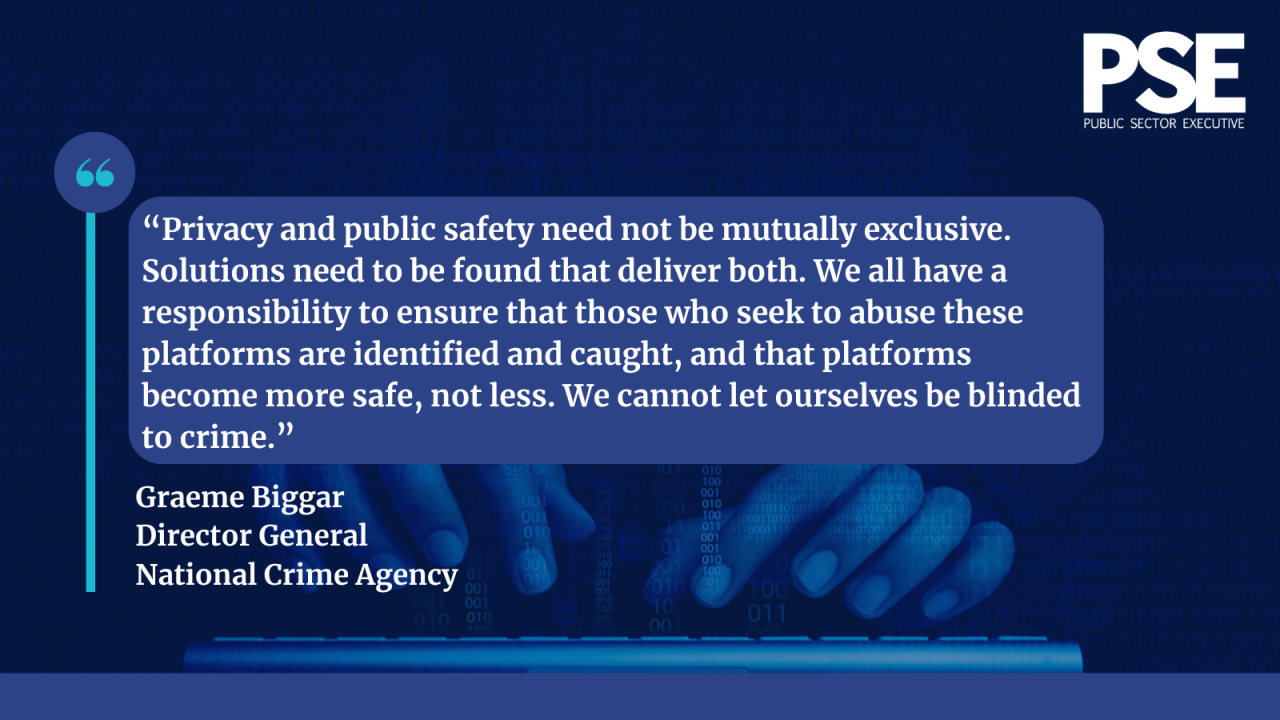The Director General of the National Crime Agency has spoken about the importance of technology companies taking action to ensure that members of the public remain safe as they use technology platforms.
This week, Police Chiefs from around Europe came together in London to discuss their concern that developments in end-to-end encryption is undermining their ability to investigate online crime and keep the public safe. This encryption stops tech companies from seeing any illegal activity that might be taking place on their platforms, whilst also impeding the ability of law enforcement to access the data of those who may be committing crime through constantly evolving technologies.
Some of the crimes that are become tougher to prosecute include child sexual abuse, human trafficking, drug smuggling, murder, economic crime, and terrorism offences.

Graeme Biggar, Director General of the NCA, said:
“Encryption can be hugely beneficial, protecting users from a range of crimes. But the blunt and increasingly widespread rollout by major tech companies of end-to-end encryption, without sufficient consideration for public safety, is putting users in danger.
“They cannot protect their customers as they are no longer able to see illegal behaviour on their own systems. Child abuse does not stop just because companies choose to stop looking.
“These changes are also making it harder for us to investigate serious crime and protect the public, as the companies are less able to act on a warrant and provide us with the data of suspected criminals.
“Privacy and public safety need not be mutually exclusive. Solutions need to be found that deliver both. We all have a responsibility to ensure that those who seek to abuse these platforms are identified and caught, and that platforms become more safe, not less. We cannot let ourselves be blinded to crime.”
In the UK, around 1,200 children have been protected – as well as around 800 offenders arrested – every month through measures that companies are taking to proactively report crime to the police, however the rollout of end-to-end encryption could see the majority of these reports being lost. Another example of a successful investigation that would have been hampered by new privacy rules comes through the dismantling of a firearms supply chain, as the tech companies were able to provide information that led to the identification and arrest of an armourer – the response of the tech company to a lawful warrant ensured that the weapons and ammunition were intercepted before they were able to enter criminal circulation.
Since the UK left the European Union, the NCA has worked closely with its European counterparts to ensure that threats from serious and organised crime are tackled. Europol’s Executive Director, Catherine de Bolle, commented on the threat of end-to-end encryption:
“Our homes are becoming more dangerous that our streets as crime is moving online. To keep our society and people safe, we need this digital environment to be secured. Tech companies have a social responsibility to develop a safer environment where law enforcement and justice can do their work. If police lose the ability to collect evidence, our society will not be able to protect people from becoming victims of crime.”
To learn more about the ethics and privacy involved when adopting new technology, watch Public Sector Executive’s 2024 Public Sector Emerging Technologies online conference now.
Image credit: iStock



















